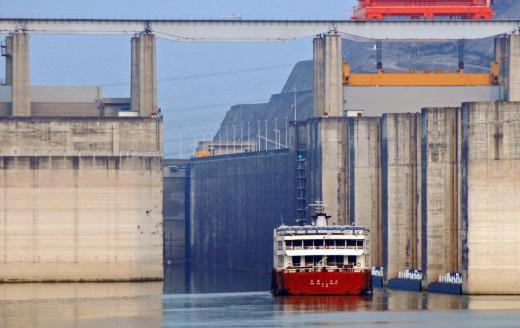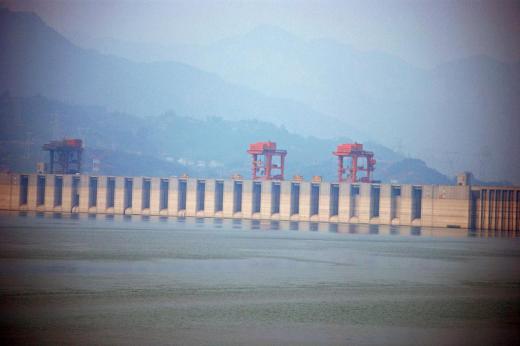The world's largest power plant is the Three Gorges Dam on the Yangtze River in China. The project has been in development since 1994, and is expected to become fully operational in 2011. At that time, it is expected to be able to produce as much as 22.5 gigawatts (GW) of power. In August 2009, even before all the generators were online, the plant produced 18.3 GW, more than any other power plant in the world.
The Three Gorges Dam was a massive engineering project, and not without its controversies. Over 1 million people were relocated from the area to make way for the dam and the reservoir it created. There has also been a great deal of concern about water pollution and damage to the environment. Hydroelectric power is a relatively clean form of energy, however, and is expected to help reduce China's dependency on coal and other fossil fuels. The dam has also helped control flooding in the area, and reduced the severity of droughts downstream.

For many years, the world's largest power plant was a hydroelectric dam on the Paraná River on the border between Brazil and Paraguay. The bi-national project, led by the company Itaipu Binacional, was named in honor of an island that was at the location of the construction site, Itaipu, which means "singing stones" in the native Guarani language. The Itaipu dam can produce as much as 17.6 GW of power through its 18 installed hydroelectric generator units. In 1995, the dam was named one of the Seven Wonders of the Modern World by Popular Mechanics magazine.

The Itaipu dam was finished in May 5, 1984, but all 18 generators were not installed until 1991, meaning it didn't become the world's largest power plant until sometime around 1985. The dam took 14 years to built, with construction beginning in January 1970. In 2005, it provided 93% of the energy used by Paraguay and 20% of that consumed by Brazil. That is enough energy for millions of people. Itaipu also makes evident the deep cooperation and mutual trust between Brazil and Paraguay.

It is quite likely that hydroelectric dams will always claim the title of the world's largest power plant in the world for a while yet, as you can't easily beat a natural source of tremendous energy such as this. Hydroelectric dams are limited by the size of the river, however, whereas alternative sources such as nuclear and solar have no such limitations. Nuclear is limited by the quantity of nuclear fuel, solar by the energy output of the sun. Both quantities are absolutely huge, many times the human race's annual electricity consumption.
It is not easy to chain hydroelectric dams next to each other because of the huge flood basins they create. Sometime in the future, it would be unsurprising if a solar satellite installation took over for the title of the largest power plant. Though according to some, it wouldn't be the "world's largest," as it would be literally out of this world!
